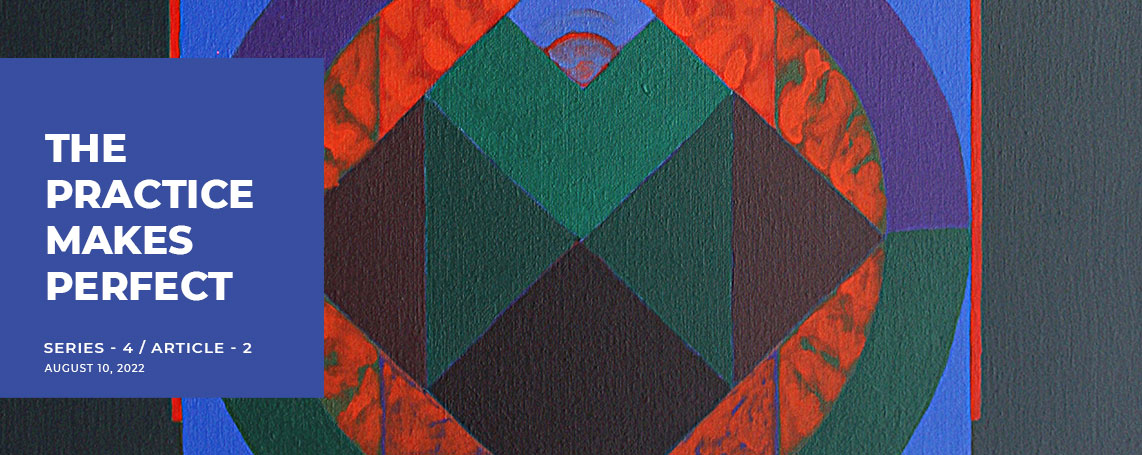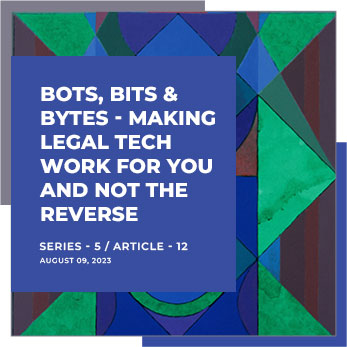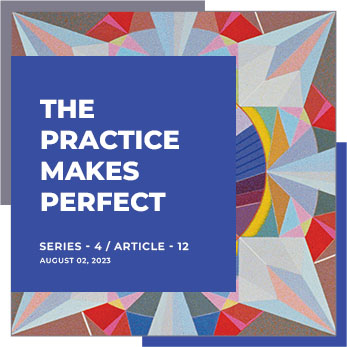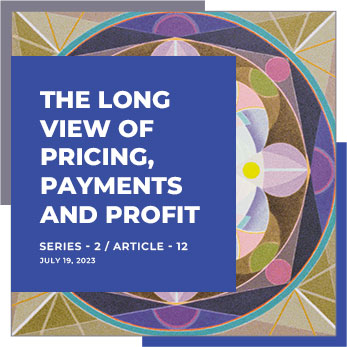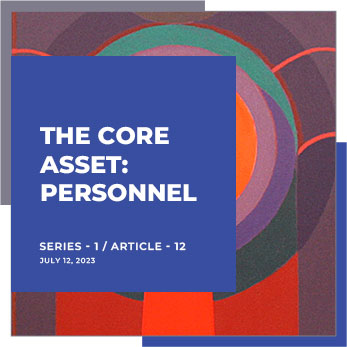From Spotify to SoundCloud, Pandora, Tidal, Apple Music, Amazon Music, and more, there are numerous music streaming services to choose from, and today’s music lovers will be hardpressed to be found without a favorite tune.
However, finding oneself without melodious monetization can be an all-too-common refrain for the creative artist and digital distributor. Recent legislation has served to fine-tune the protections for those upstream and lessen the legal loopholes for listeners.
Previous Digital Rights Management
In 1998, President Clinton signed into law the Digital Millennium Copyright Act (DMCA), implementing the World Intellectual Property Organization (WIPO) treaties that were intended to thwart the use of technologies or services to circumvent legitimate access to copyrighted works. The DMCA criminalized circumventing of controls over Digital Rights Management (DRM) even where actual copyright infringement could not be proven. A significant feature of the DMCA was the limitations it placed on the liability of internet service providers and other content distributors for copyright violations of those illegally disseminating digital content over their platforms. Despite this combination of criminalization and strengthened protections, widespread creative content piracy continued.
Streaming by the Numbers
To comprehend the impact of piracy on the music industry, US music sales revenues hit approximately $14.6 billion in 2000, which was only two years after signing the DMCA. However, by 2009, the figure had dropped to a mere $6.3 billion, despite an exponential increase in the amount of music content being marketed by distributors and acquired by consumers. The industry was hemorrhaging largely due to the increasingly widespread use of digital music platforms and the illegal counterparts they spawned.
Part of the problem was that, because of a loophole in the law, live streaming was considered an infringement only of the right of public performance and not unlawful reproduction and distribution of a copyrighted work. Therefore, severe criminal penalties related to DRM copyright infringement were not imposed. Clearly, greater control over copyright protection for creative artists is in order.
Protecting against Piracy
It took more than two decades for Congress to re-evaluate how to protect DRM, especially in regulating live streaming of digital music. Estimates of American household use of streaming services cite a figure of 20% of households accessing an illegal pirate website to stream content for which the copyright owner is never reimbursed. In December 2020, President Trump signed the Protecting Lawful Streaming Act (PLSA or Act) to stem the tide of such huge losses. Rather than trying to track down and prosecute the millions of Americans who, admittedly, are breaking the law by stealing pirated content, the PLSA instead focuses on operators of digital service platforms who are the real piracy profiteers. Under the PLSA, unlawful streaming can now be charged as a felony, the same as other instances of any unlawful reproduction and distribution of copyrighted digital material. Whereas previously, such conduct was classified as a misdemeanor, and as a result, exposure to such light penalties hardly served as a deterrent to streaming piracy.
Key Points of the PLSA
The real targets of the Act are large-scale digital services engaged in illegal streaming for commercial gain. According to the Act, illegal streaming operators must act:
- Willfully
- For purposes of commercial advantage or private financial gain
- Offer or provide the public a digital transmission service, which is defined as one that has the primary purpose of publicly performing works by digital transmission.
In addition, to become subject to the Act, such streaming service must be:
- Primarily designed or provided for the purpose of streaming copyrighted works without the authority of the copyright owner or the law
- Has no commercially significant purpose or use other than to stream copyrighted works without the authority of the copyright owner or the law
- Or, is intentionally marketed or directed to promote its use in streaming copyrighted works without the authority of the copyright owner or the law
Violators of the Act may face fines or imprisonment (of not more than three years, or both) for first-time offenders, with serial violators possibly facing up to 10 years of imprisonment and fines. The Act also provides for ‘enhanced penalties’ in infringement of newly released movies or live streaming of sporting or concert events. Furthermore, a legitimate copyright owner who determines that his or her material has been pirated is afforded tools under the Act to prosecute civil and criminal remedies to have the unauthorized streaming operation shut down.
Additional Musicians’ aid proposed
Aside from combatting digital piracy, there is also a need to address the lack of a level playing field for small and independent musicians who need a better bargaining position when going up against large, legitimate streaming operators. Under existing laws, these creative artists have little ability to bargain for market value rates when their music is used by giant online streaming platforms, and they are left to accept whatever terms are offered by such platforms.
However, legislation recently introduced by Representative Ted Deutsch of Florida seeks to remedy that situation. His proposed Protect Working Musicians Act is slated to grant more power to musicians by allowing them to band together in a sort of collective bargaining framework, without the risk of transgressing anti-trust laws. Rep. Deutsch noted, “Through the pandemic, streaming services became even more indispensable, allowing us to enjoy the music we love, even when live performances were shut down. But with the exponentially increasing market power of a few tech platforms, the voices of independent musicians are getting harder to hear. By empowering a more diverse chorus of voices to negotiate fair terms and rates for their music, the Protecting Working Musicians Act recognizes the fundamental value of music and gives working artists a fair shot.”
Listeners and Loopholes
Ultimately, loopholes, whether deemed to be ‘legal’, or by way of technological schemes and shenanigans, will be hard to close as long as there exists a music-loving population that continues to patronize piracy platforms. The challenge for the industry, therefore, is to close the loopholes while fairly enforcing the licensing that protects artists.
Executive Summary
The Issue
How to satisfy the burgeoning on-demand market for live digital streaming while protecting the copyrights of the artists?
The Gravamen
Loopholes allowing a $29 billion loss in revenue must be closed by enforcement of the legislative tools available to industry stakeholders.
The Path Forward
By delegitimizing and shutting down piracy platforms, equitable licensing of legitimate services will protect a vulnerable sector of the entertainment world.
Action Items
IP Protection:
Confirm that your creative clients have obtained copyright protection for their compositions, sounds,and other creative works.
Monitoring Intellectual Property::
Ensure that copyrighted material is registered or deposited with a music industry registry such as The American Society of Composers, Authors and Publishers (ASCAP) to monitor public performances, whether via broadcast or live, and that they are compensated accordingly.
Stay Up To Date:
Stay informed of the promoted as well as proposed legislation that affects both your creative clients and your streaming business clients.
Advising Streaming Operators:
Test the waters as to whether timesharing, conference-centering, investor promotions, shareholder meetings, and other uses that are not traditional law firm functions will work for you.
Study ethics considerations:
Advise your streaming platform clients about their licensing and other operations obligations to avoid running afoul of the PLSA and other pertinent legislation.
Further Readings
- https://abounaja.com/blogs/music-streaming-copyright
- http://www.mjilonline.org/the-expansion-of-spotify-and-international-copy- right-law-impact-on-artists/
- https://journals.library.columbia.edu/index.php/lawandarts/article/view/8953
- https://www.taylorwessing.com/en/interface/2021/predictions-2022/dl-the-econom- ics-of-music-streaming
- https://www.wipo.int/edocs/mdocs/copyright/en/sccr_41/sccr_41_3.pdf
- https://copyrightalliance.org/protecting-lawful-streaming-act-signed/
- https://teddeutch.house.gov/news/documentsingle.aspx?DocumentID=403035

